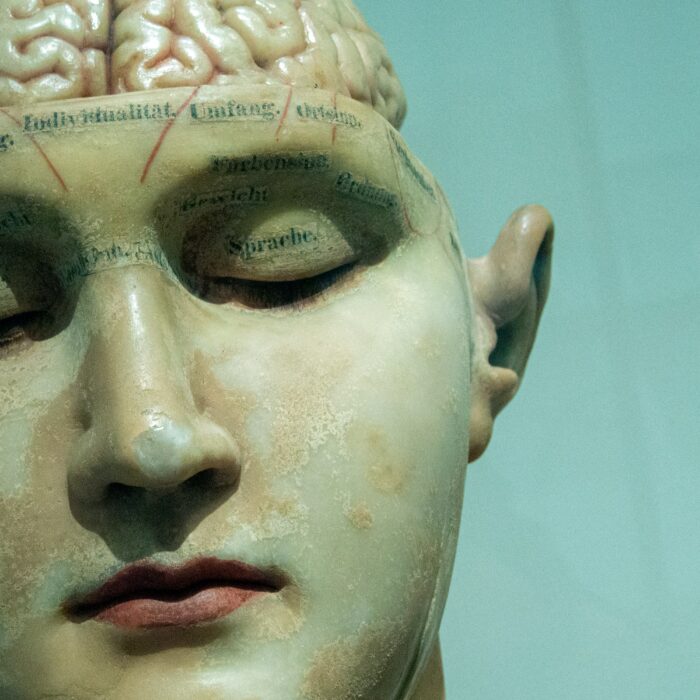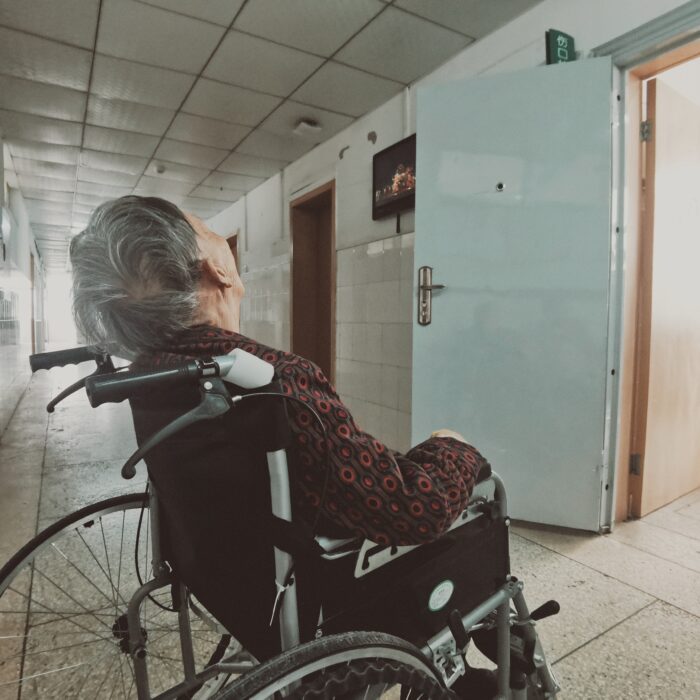You have no items in your cart. Want to get some nice things?
Go shopping I’d forgotten my reading glasses and I put down the magazine. I was killing time while David, my barber, finished cutting the hair of his customer. It wouldn’t be a long wait; David was a very efficient barber. I studied his new assistant. His name, Joe, was in big letters at the top of his mirror. He was a thin, nervous guy and he seemed to be dancing around his customer as he worked. They were talking about Obama and Joe was doing most of the talking, stopping every few seconds to make a point. He was young, maybe even still in his thirties. David had five grandchildren.
I’d forgotten my reading glasses and I put down the magazine. I was killing time while David, my barber, finished cutting the hair of his customer. It wouldn’t be a long wait; David was a very efficient barber. I studied his new assistant. His name, Joe, was in big letters at the top of his mirror. He was a thin, nervous guy and he seemed to be dancing around his customer as he worked. They were talking about Obama and Joe was doing most of the talking, stopping every few seconds to make a point. He was young, maybe even still in his thirties. David had five grandchildren.
I’d been coming to the barbershop since I’d moved to town 20 years earlier. On the wall there was a framed flag and large pictures of old-time stars, including Mickey Mantle and Johnny Unitas. There was even one of Marilyn Monroe.
The customer got up and paid David. I waited patiently while David swept up around his chair. He kept the place spotless.
“I’m all set, Mark,” he said when he was done.
I sat in his chair.
“How’s Jake?” he asked while he put the cape around me.
“He’s doing great, thank you. Probably making more money than me.”
David had coached my son Jacob in Little League, which is how I got started coming to the shop. We’d even invited David to Jacob’s bar mitzvah.
“Are we going to the World Series this year?” I asked.
“Not with those pitchers. The usual?”
“A little on the short side. I want to hide as much of the gray as possible.”
He started cutting and neither of us spoke again until he’d finished. It wasn’t that David wouldn’t talk with you, but you had to initiate the conversation. His focus was on cutting your hair. Next to me his new assistant Joe rambled on about Obama. At least Joe liked him.
The haircut was perfect and for a few weeks I would believe I looked younger. I tipped David well but he would have cut my hair the same way for no tip, just as he’d done a good job coaching my son in baseball.
The next time I went there were three people waiting. David was almost done with his customer, which meant I would probably get Joe. Of course, I could always say I wanted David and wait, but I didn’t like to do that. It wasn’t fair to David, who was trying to run a business.
I found a good magazine and read until I was next in line. Joe was chatting away, this time about movies. He finally finished the haircut, the customer paid, and Joe went into the back room. He didn’t come out for a couple of minutes and I started to get antsy.
“Just a moment,” he said when he emerged. He took a broom from the corner and swept around his chair. There was still hair on the floor when he put back the broom and motioned to his chair.
I sat in it. “A little on the short side. I want to hide as much of the gray as possible.”
“Sure.”
He put the cape around me and fastened it at the back. Then he got his scissors and comb and began cutting my hair. He always seemed to be in motion and he never stopped talking. For the most part I kept my mouth shut, but sometimes it was impossible, like when he started in on the revitalization of the downtown area.
“I keep hearing people don’t want to shop downtown. They’d rather go to the malls,” he said.
“If you have a good product, people will come.”
“Everyone says the town needs to put in angle parking.”
“They’ve been saying that since I moved here. You could have all the parking in the world and it won’t help unless you have good stores.”
“If there is no place to park, though.”
A boy came in with his mother. Then a father and son. I glanced over at David, who was cutting the hair of a teenager. Joe wasn’t going to last very long with David if he didn’t learn to shut up. Joe must have been thinking the same thing because he worked faster after that, although he never completely stopped talking. The haircut itself was fine and I tipped him the same amount I’d tipped David.
Two months later I was back. Joe was by himself. He was cutting the hair of one of David’s regulars. The shop seemed somehow different. I thumbed through the magazines while I waited. Joe and the customer were having a conversation about the school calendar. The School Board had voted to change Christmas Recess to Winter Recess on the calendar, causing an uproar. I lived in a pretty conservative town.
“Did David take the day off?” I asked when it was my turn.
“He’s sick.”
“That’s unusual. He never misses a day.”
Joe hesitated for a moment. Then he said, “He has cancer. He’s doing chemotherapy.”
“I’m so sorry to hear that.”
“Yeah. He had surgery. The he started the chemotherapy. He comes in when he’s feeling okay but he doesn’t stay the whole day.”
“What kind of cancer if you don’t mind my asking.”
“Colon cancer.”
“I’ll have to send him a card.”
“He’d like that.”
I sat in his chair. “A little on the short side. I want to hide as much of the gray as possible.”
“Sure.”
He put the cape around me and fastened it. He got his scissors and comb.
“By the way,” I said. “I agree with you about the school calendar. I’m glad they changed it. At first I didn’t care but all the fuss changed my mind.”
“Yeah. Not everyone celebrates Christmas.”
I didn’t want to encourage him and I didn’t say any more. He started cutting. He kept stopping to chat, this time about the Patriots, but he eventually finished the haircut, which was fine. I paid him and went my way.
When I went back two months later, David was there. He’d lost weight and his hair was gone. There were no customers and he was sitting in his chair.
“Good to see you back,” I said.
He got up and shook my hand.
“Thank you for the card.”
“You’re welcome. Are you here full-time?”
“Until about three. I’m going to do the radiation in the afternoons.”
“Where’s Joe?” I asked as I sat in his chair.
“He’s around somewhere. Same as always?”
“Sure.”
In the middle of the haircut a young man came in and sat down. I still hadn’t seen Joe. David waited a few minutes before he excused himself, walked over to the curtain covering the back of the shop, and shouted, “Joe.” Thirty seconds later Joe came out.
“I didn’t know there was a customer waiting,” he said.
David didn’t say anything. I wondered why he didn’t just get rid of him. Then I realized David was stuck with him, at least until David got healthy.
The young man sat in Joe’s chair. As always, Joe talked, this time getting into a spirited conversation about treatment for opiod users. David finished my haircut and the product was the same as always. He was moving slowly, though. The chemotherapy had taken its toll on him.
The next time I went, the shop was empty. The door was unlocked and I went inside. I assumed whoever was working was in the bathroom and I waited in one of the chairs along the wall. After a few minutes I called out hello. When no one answered, I called out louder. Still no answer. I walked over to the curtain at the back and shouted, “Hello. Anybody here?” No one answered. Then Joe walked in the front door.
“Where’s David?” I asked.
“He’s not working today.”
“Aren’t you worried about something being stolen?”
“David told me the customers would go somewhere else if I locked the door.”
I couldn’t remember David ever having left the shop unattended. I walked over to Joe’s chair.
“Is David okay?” I asked.
Joe looked at me. “He’s sick again.”
“The cancer came back?”
“He had a heart attack. About two weeks ago. He’s in rehab now.”
I sat down.
“The poor man,” I said.
“It’s been tough for him. The doctor thinks the chemotherapy caused it.”
“It takes a toll on you.”
“Yeah. He’s had it pretty tough.”
“A little on the short side. I want to hide as much of the gray as possible.”
He fastened the cape around me and got his comb and scissors. I was thinking about David and I didn’t respond to any of his conversation starters until he mentioned he had a friend whose son was gay.
“My niece is gay,” I said.
“How old is she?”
“Thirty. She’s getting married next year.”
“My friend’s son’s sixteen, I think. He’s getting bullied at school.”
“That’s too bad. My niece didn’t come out until she was in college. My sister and her husband and my parents are fine with it. His parents had some trouble at first.”
“Some people aren’t used to anything different,” he said.
“There’s no excuse for intolerance.”
“That’s true.”
“There are some people I just want to strangle.”
He smiled. No other customers came in and we talked the whole time.
Two months later, when I went back, only Joe was working. While I waited for him to finish with his customer, I looked around the shop. I had that same feeling of something being different. Then I realized why. Everything was a little out of place. For David there was a place for everything and everything was in that place.
Two young boys came in with their mother while I was waiting. Joe was chatting with his customer about the affordable housing projects in town and he seemed to be in no rush. After he finished, he went into the back room. Two minutes later he came back out, swept around the floor, although not very well, and finally motioned me to his chair.
“David still out?” I asked.
“Yeah. The doctor wants him to rest as much as possible. He’s going to have a second operation. They’re going to put in another stent.”
“I feel bad for him,” I said.
“It’s been a tough six months for him.”
Joe hadn’t even put the cape around me yet. I was aware of the mother and the two boys waiting behind me.
“A little on the short side. I want to hide as much of the gray as possible.”
“Sure.”
He got his cape and fastened it around me.
“What do you think of the housing projects they want to put up in the town?” he asked.
“People need a place to live.”
“I think so, too. A lot of people don’t like them, though.” “I guess.”
“People are worried about their taxes going up.”
“It won’t kill them.”
He began cutting. I was conscious of the two boys waiting and I kept fending off his conversation starters until he asked, “If Trump’s the president, do you think he’ll build that wall?”
Both my parents are from Poland and my wife is from Israel, and immigration, more than anything else, pushes my buttons.
“He’s not going to get elected.”
“He’s doing well in the states.”
I shook my head, “I don’t even want to think about it.”
“Some of the customers like him.”
“This town’s more conservative than people realize.”
The woman and the two boys got up. They didn’t say anything as they left.
“I guess they couldn’t wait,” Joe said.
Two months later, when I went back, Joe was using the first chair. “You’re using David’s chair,” I said when it was my turn.
“He’s not coming back.”
“Is he okay?”
“He’s doing good. He’s retiring.”
“Good for him. What about the shop?”
“I’m buying it. David offered me a good deal. I just have to work out the financing.”
“It’s a good location. David was always busy, so you should do well if you can keep his old customers.”
“A lot of them have been coming in and telling me they want to keep coming.”
“Good luck”
“Thank you.”
He put the cape around me and fastened it at the back. Then he got his scissors and a comb.
“I’m going to replace the pictures,” he said. “Get something more modern. I’d like to get new furniture, too.”
“You don’t want to change too much. You might lose David’s customers.”
“I don’t think that’ll happen. I just want to modernize the
place.”
Scissors and comb in hand, he stood at my side. He had yet to start cutting.
“Seems fine the way it is,” I said.
“I just want to make it better for the customers. Make it more comfortable.”
I was tempted to point out most customers wanted a good, quick haircut, but I suspected he would miss the irony. I didn’t speak and he actually began cutting my hair although he stopped constantly to chat. As always, the haircut was fine.
Two months later I was back. Joe had his own sign. The lettering was one of those fancy fonts you can make on the computer. The flag and David’s pictures were gone from the walls and Joe had put up ones of Tom Brady and Pedro Martinez. Marilyn Monroe had been replaced by some singer I didn’t recognize. Along the wall there were new, bright red chairs. Joe was cutting the hair of an elderly man. A young man was sitting in one of the new chairs. I thumbed through the magazines while I waited. Two more customers came in and Joe didn’t talk as much, although he talked more than David had in an entire week. David Ortiz’s retirement was the big topic.
Each time I went back there was something different about the shop. After six months David wouldn’t have recognized the place. Sometimes the shop would be crowded and the haircuts would move along quickly. Other times not so quickly. I’d learned to bring a book. To be honest, the waiting occasionally irritated me but he was every bit as good a barber as David, if not better.
One afternoon in early October I had the afternoon off and I did a few errands downtown. The temperature was in the low seventies and you had the feeling it might be the last warm day of the year. I passed the barber shop and Joe was by himself inside. On the window there was a sign saying the shop was going to be closed for two weeks. On impulse I decided to get a haircut.
“Beautiful day,” I said when I went in.
“It’s really nice out.”
“Winter’s coming. I bet it’s a tough one this year.”
“I hope not.”
I sat in his chair. “I saw the sign. Are you going away?”
“I’m going to visit my parents.”
“Where do they live?”
“In Korea.”
“Korea! How did they end up there?”
“They’re missionaries. I was born there.”
“How long were you there?”
“I grew up there.”
“Did you like it?”
“Not really. I never fit in.”
He was standing next to the chair. He hadn’t even put the cape on me yet.
“When did you come here?”
“I was eighteen. I was supposed to go to college but I dropped out. I’m the black sheep in the family.”
“What do you mean?”
“My brother and sister are both missionaries. My parents are disappointed in me. I’m just a barber.”
“You need good barbers.”
“Thanks.”
“Do you speak Korean?”
“I grew up speaking it but I haven’t used it in a while.”
“Did you go to Korean schools?”
“I went to the American School in Seoul.”
“And the Korean people weren’t nice to you?”
“They were nice. I just didn’t fit in. I don’t fit in here, either.”
“When was the last time you saw your parents?”
“Eight years ago.”
“Are you excited?”
“I want to see them.”
I nodded. “Good.”
No one else came in and I stayed for over an hour. Joe told me about growing up in Korea and struggling when he first came to the United States. It was quite a story and it made me see him in a new light. He was an outsider. In a way we were kindred spirits. At the least he was my barber.

About Tony Concannon
Tony Concannon grew up in Massachusetts. After graduating from college with a degree in English and American Literature, he taught for 18 years in Japan, where much of his fiction is set. Since returning to the United States, he has been working in human services. Stories of his have appeared in Columbia Journal, Litro, On the Premises, The Taproot Literary Review, Oasis Journal, Here Comes Everyone, The Lost River Review and Eastlit.




